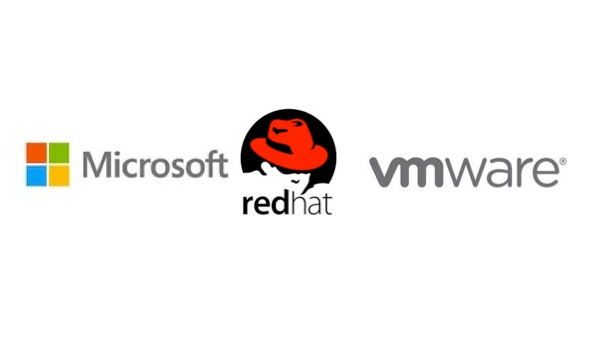VMware, Microsoft Clouds Need Red Hat Linux
Microsoft and VMware have impressive cloud computing strategies. But neither company truly supports Red Hat Enterprise Linux in their respective IaaS clouds: Windows Azure and vCloud Hybrid Service. That's a mistake.
August 30, 2013

By samdizzy
VMware (VMW) vCloud Hybrid Service appears set to support such Linux distributions as SUSE, Ubuntu and CentOS. Somewhat similarly, Microsoft (MSFT) Windows Azure supports SUSE, OpenSUSE, Ubuntu and CentOS. Noticeably absent from the Microsoft and VMware cloud lists: Red Hat’s (RHT) Enterprise Linux. That’s a big mistake as all three companies seek to promote complete, flexible cloud solutions to VARs, MSPs and cloud integrators.
First, let’s focus on the positive. VMware, Microsoft and Red Hat each have compelling cloud strategies.
VMware: With vCloud Hybrid Service, VMware says customers can easily shift certified vSphere applications from on-premises data centers to VMware’s cloud — and vice-versa. With such a massive installed base of virtualized customers, VMware’s pitch should be attractive to small, midsize and large organizations.
Microsoft: Both Windows Azure and Office 365 seem to have real momentum. And to Microsoft’s credit, the Azure cloud supports a range of development platforms and open source platforms. Plus, Windows Server 2012 with Hyper-V is a compelling on-premises platform for building hybrid clouds that interact with Azure.
Red Hat: The company’s Linux platform is widely deployed in many traditional data centers. More recently, Red Hat has been pushing Enterprise Virtualization (RHEV, based on KVM). Plus, Red Hat’s hybrid cloud strategy includes CloudForms offers cloud management; OpenShift for PaaS, and OpenStack for private and hybrid clouds.
Like most software companies these days, Microsoft, Red Hat and VMware each need to compete and cooperate. So far, VMware vCloud Hybrid Service has cooperated closely with SUSE. And it sounds like Ubuntu and CentOS are part of the near-term strategy, too. And Microsoft clearly states that Azure supports the following Linux distributions.
But where’s Red Hat on those lists? Apparently nowhere. That’s not good. Read between the lines and one or two things are clear:
Microsoft and VMware consider Red Hat too strong a player, and don’t want to cooperate too deeply on cloud.
On the flip side, perhaps Red Hat is the stumbling block — not willing to support Azure and vCloud Hybrid Service because it would only strengthen the Microsoft and VMware cloud hands.
Either way, partners and customers should object and demand Red Hat Enterprise Linux in both clouds… or simply walk on over to potential alternatives — such as Amazon Web Services, which offers Red Hat on the Elastic Compute Cloud.
You May Also Like
